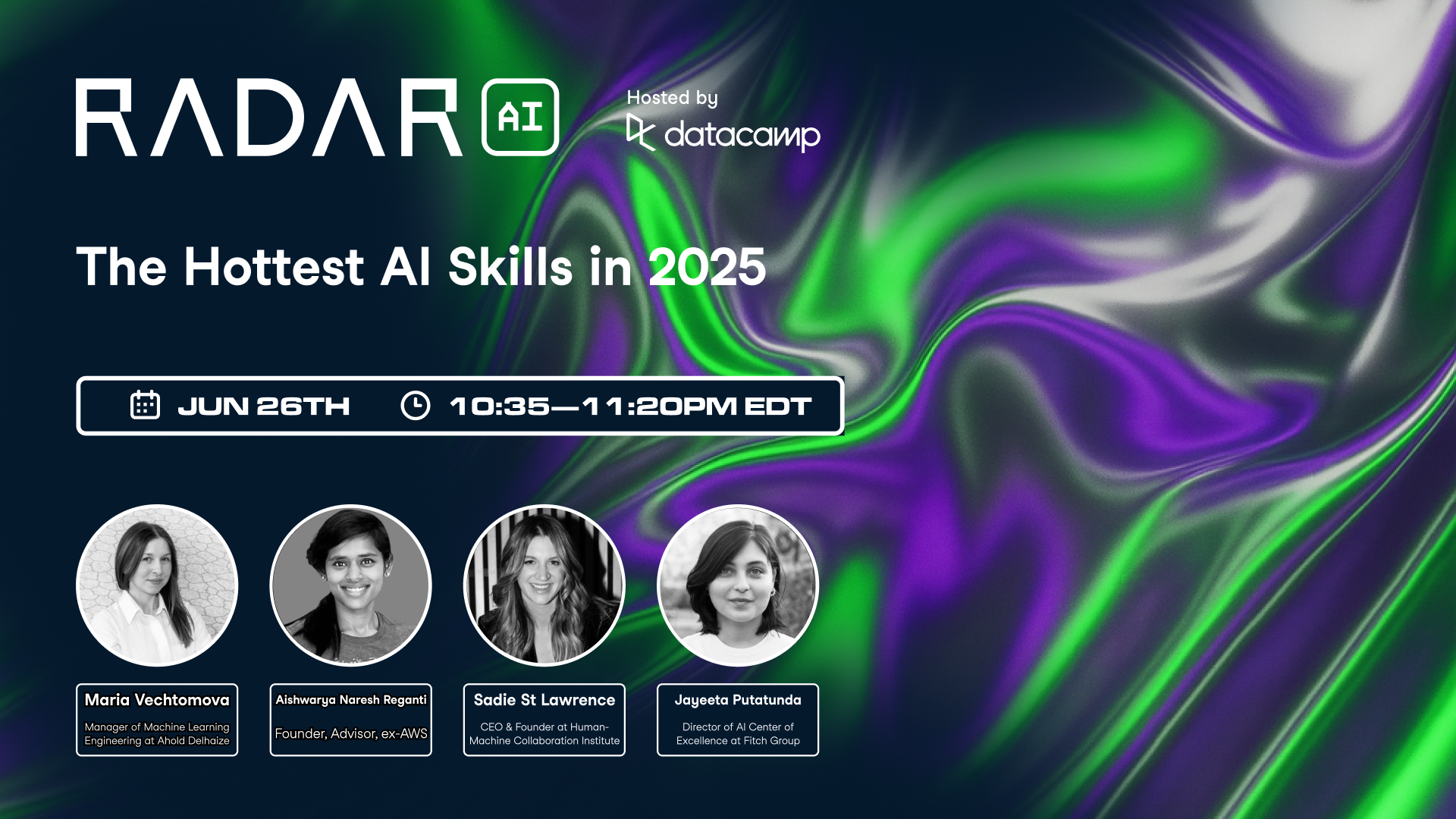Speakers


Maria Vechtomova
Manager of Machine Learning Engineering at Ahold Delhaize


Training 2 or more people?
Get your team access to the full DataCamp library, with centralized reporting, assignments, projects and moreThe Hottest AI Skills in 2025
July 2025
Related
webinar
The State of Data & AI Literacy in 2025
Explore the latest trends shaping how organizations are building data and AI skills across their workforce.webinar
AI and the Workforce: How Will AI Reshape Data and Technology Roles?
Industry experts explore how AI is reshaping the skills, responsibilities, and opportunities within the tech industry.webinar
Building AI Skills with DataCamp
Discover how DataCamp can help you future-proof your career and business with new AI-focused courses.webinar
The State of Data & AI Literacy in 2024
Join this webinar to learn how and which data & AI skills are becoming increasingly pervasive in organizations across industries, how leaders are adapting their teams and workforce to the era of data & AI literacy and more.webinar
How to Attract & Retain AI Talent
In this session we explore how to create a successful AI talent strategy. Learn about the key roles that leverage AI, the skills needed to excel in these positions, and how to develop AI literacy throughout your organization.webinar